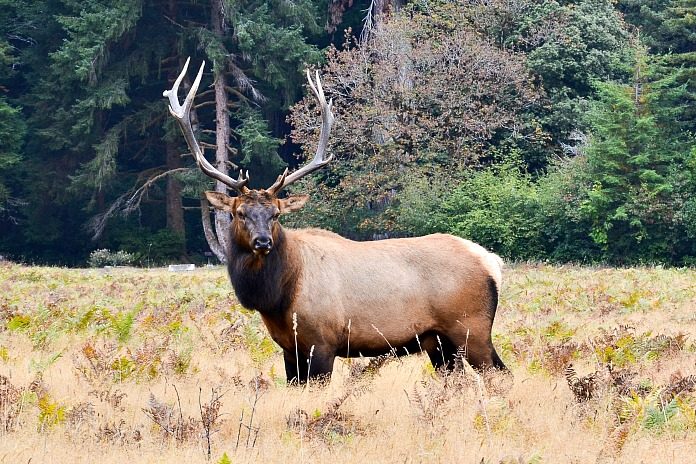
The Oregon Department of Fish & Wildlife is proposing some changes to big game hunting regulations beginning in 2019, the latest in a multi-year effort aimed at simplifying hunting and fishing regulations.
“Hunters tell us the regulations are too complicated, so we are making an effort to simplify whatever we can while still meeting the intent to conserve wildlife and ensure fair chase of game,” said Nick Myatt, ODFW Grande Ronde watershed manager, who is leading the effort for the agency.
ODFW will brief the Fish and Wildlife Commission on these changes during the June 8 meeting in Baker City and present final proposals to the Commission Sept. 14 in Bandon. Hunters and other interested parties are welcome to comment by testifying at these meetings or by emailing odfw.commission@state.or.us.
Among the proposed changes include:
- Standardize the minimum draw weight for bows at 40 pounds for all big game mammals, which will both simplify the regulation and remove barriers to archery hunting for youth and other smaller-framed hunters. (Currently, minimum draw weight is 50 pounds for elk, sheep and goat and 40 pounds for other big game.)
- Eliminate the prohibition against decoys with moving parts when big game hunting. Staff believe the regulation is unnecessary and could be reducing cougar harvest.
- Simplify requirements for legal muzzleloaders while maintaining the intent of a relatively short-range, primitive weapon. The requirement for muzzleloaders to have an open ignition would be eliminated; the legal bullet regulation would be simplified to, “It is illegal to hunt with or possess sabots or saboted bullets;” and the prohibition on pelletized powder would be eliminated.
- Change the SW Oregon first-come, first-served spring bear hunt to a controlled hunt consistent with all other spring bear hunts in Oregon. This change simplifies regulations, may better distribute hunting pressure, and will allow hunters to purchase a point saver for spring bear.
- Eliminate maximum party size limits for deer, elk, pronghorn, and bear hunts. ODFW believes party size is self-regulating and the regulation unnecessary.
- Prohibit the import of deer, elk, or moose parts containing central nervous system tissue from any other state or province. (Currently Oregon only prohibits such imports from states/provinces with a known case of CWD. The change will simplify regulations and support Oregon’s efforts to prevent this disease from entering the state.)
- Limit leftover tag purchases to people who have not already drawn a tag (will require legislative approval). This change would allow more people an opportunity to hunt each year.
- Streamline limits on non-resident tags so deer, elk, pronghorn, and bear controlled hunts will all have a maximum of 5 percent non-resident tags (will require legislative approval).
- While ODFW is not proposing allowing mechanical broadheads for big game archery hunters, due to interest in the topic, it will present the issue to the Commission for discussion at the meetings in Baker City and Bandon.
Several other regulations have been reworded to make them easier to understand, including the regulation prohibiting rifle hunting without a valid deer or elk tag during certain time periods and the proof of sex requirements. Other regulations deemed unnecessary or redundant have been proposed for elimination.
If the Commission approves the proposed changes in September, they will take effect for the 2019 hunting season. Changes requiring legislative approval will be considered as legislative concepts during the 2019 legislative session.










